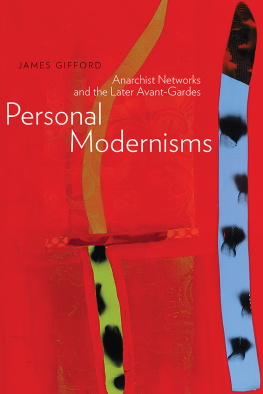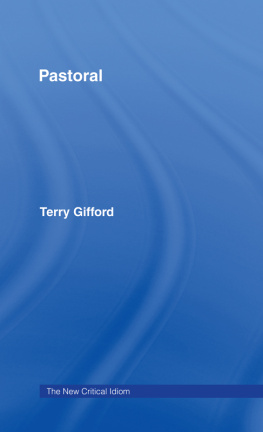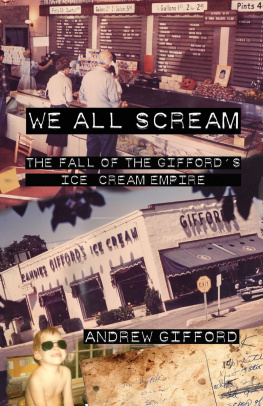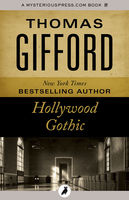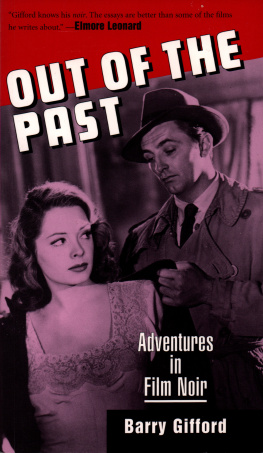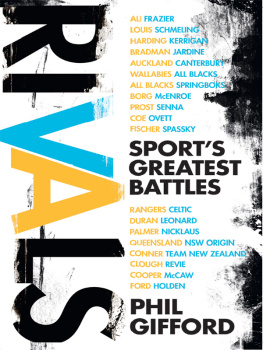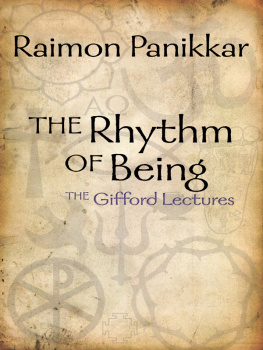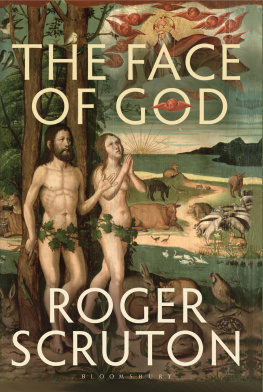Gifford - Personal Modernisms
Here you can read online Gifford - Personal Modernisms full text of the book (entire story) in english for free. Download pdf and epub, get meaning, cover and reviews about this ebook. publisher: University of Alberta Press (eBOUND), genre: Politics. Description of the work, (preface) as well as reviews are available. Best literature library LitArk.com created for fans of good reading and offers a wide selection of genres:
Romance novel
Science fiction
Adventure
Detective
Science
History
Home and family
Prose
Art
Politics
Computer
Non-fiction
Religion
Business
Children
Humor
Choose a favorite category and find really read worthwhile books. Enjoy immersion in the world of imagination, feel the emotions of the characters or learn something new for yourself, make an fascinating discovery.
Personal Modernisms: summary, description and annotation
We offer to read an annotation, description, summary or preface (depends on what the author of the book "Personal Modernisms" wrote himself). If you haven't found the necessary information about the book — write in the comments, we will try to find it.
Personal Modernisms — read online for free the complete book (whole text) full work
Below is the text of the book, divided by pages. System saving the place of the last page read, allows you to conveniently read the book "Personal Modernisms" online for free, without having to search again every time where you left off. Put a bookmark, and you can go to the page where you finished reading at any time.
Font size:
Interval:
Bookmark:

Published by
THE UNIVERSITY OF ALBERTA PRESS
Ring House 2
Edmonton, Alberta, Canada T6G 2E1
www.uap.ualberta.ca
Copyright 2014 James Gifford
LIBRARY AND ARCHIVES CANADA CATALOGUING IN PUBLICATION
Gifford, James, 1974, author
Personal modernisms : anarchist networks and the later avant-gardes / James Gifford.
Includes bibliographical references and index.
Issued in print and electronic formats.
ISBN 978-1-77212-001-1 (pbk.). ISBN 978-1-77212-009-7 (epub). ISBN 978-1-77212-010-3 (Amazon kindle). ISBN 978-1-77212-011-0 (pdf)
1 Modernism (Literature)Great BritainHistory and criticism. 2 English literature20th centuryHistory and criticism. 3 Modernism (Literature)United StatesHistory and criticism. 4 American literature20th centuryHistory and criticism. 5 Modernism (Literature)CanadaHistory and criticism. 6 Canadian literature (English)20th centuryHistory and criticism. 7 Anarchism in literature. 8 Avant-garde (Aesthetics). I Title.
| PR478.M6G49 2014 | 820.9112 | C2014-905192-1 C2014-905193-X |
Index available in print and PDF editions.
First edition, rst printing, 2014.
First electronic edition, 2014.
Digital conversion by Transforma Pvt. Ltd.
Copyediting and proofreading by Joanne Muzak.
Indexing by Adrian Mather.
Cover design by Alan Brownoff.
Cover image: Clay Ellis, Sticks/From Monmartre, (detail) 2012. Acrylic on canvas, 124.4 236.5 cm. Collection of the Alberta Foundation for the Arts. Used by permission.
All rights reserved. No part of this publication may be produced, stored in a retrieval system, or transmitted in any form or by any means (electronic, mechanical, photocopying, recording, or otherwise) without prior written consent. Contact the University of Alberta Press for further details.
The University of Alberta Press gratefully acknowledges the support received for its publishing program from The Canada Council for the Arts. The University of Alberta Press also gratefully acknowledges the nancial support of the Government of Canada through the Canada Book Fund (CBF) and the Government of Alberta through the Alberta Media Fund (AMF) for its publishing activities.
This book has been published with the help of a grant from the Canadian Federation for the Humanities and Social Sciences, through the Awards to Scholarly Publications Program, using funds provided by the Social Sciences and Humanities Research Council of Canada.

CONTENTS
The Shape of Literary Criticism
From the Villa Seurat to English Post-Surrealists
Theories of Personalism
Miller, Durrell, Smart, and Duncan
Acknowledgements
Fourteen years ago, Jerry Zaslove gave me a handful of books. This book would not have been possible without those books, and Ive attempted to replicate that moment of giving in my own work. The greatest gift of a teaching career is not knowing where our work leads nor what it will produce through others. The critical conundrum of this book first developed with The Henry MillerHerbert Read Letters: 193558 , which I would not have edited without support from a Social Sciences and Humanities Research Council of Canada (SSHRC) postdoctoral fellowship and the personal support of the Special Collections staff in the McPherson Library, University of Victoria, and the UCLA Library Special Collections. As the idea developed, I relied on previous scholars: Allan Antliff, David Kadlec, David Goodway, and David Weir, even where I quarrel with them. The SSHRC-supported archival work on which this book is based grew out of visits to the Universit Paris X, the Gennadius Library in Athens, the American College of Greece, the University of Tulsa, the University of Louisville, SUNY Buffalo, McMaster University, the University of Toronto, the National Library of Canada, University College London, Southern Illinois University Carbondale. The same support allowed me to consult materials that are now held by Columbia University, the British Library, and that remain in private collections. Fairleigh Dickinson University (FDU) also generously supported research travel and conference presentations, including two weeks in Oxford at the Bodleian Library and two follow-up trips to London and Oxford. The support of the staff in these libraries was invaluable, gracious, and efficient beyond any expectation. The value of these quietist escapes from the exigencies of an administrative and teaching post is inestimable. My chair, dean, and provostDaniel Grassian, Patti Mills, and Cecil Abrahamshave also offered much needed support. I was particularly fortunate to enjoy a term as a visiting professor in the graduate program of the Department of English at Simon Fraser University where I taught a course based on this book after completing its first draft. To the students in that class I owe many thanks and the hope that they will enjoy the result: Ryan Fitzpatrick, Amy DeAth, Nick Beauchesne, Crystal Bjerke, and Mark Westerlund, as well as Steve Collis, Peter Dickinson, and Betty Schellenberg for inviting me. I also co-organized three seminars for the conferences of Modernist Studies Association in Long Beach, Montreal, and Buffalomy co-organizers and the various participants all contributed to the ideas developed here, and I hope this work at least approximates the outstanding scholarship and critical perceptions you shared so graciously.
Early portions of this book were written while in a two-week residence at the Durrell School of Corfu at the invitation of University of Iowas Overseas Writers Workshop. The first draft was written in a furious one-week research trip to Victoria and the McPherson Library funded by FDU, and I also completed revisions while on a faculty retreat at FDUS Wroxton College in Oxfordshire.
Thanks are also due for the various permissions, which are too many to list, and also to authors whose estates have lapsed. For the various agencies and presses, I hope this project returns readers to unjustly neglected authors in your stables. I have also benefitted from the anonymous readers at the University of Alberta Pressenormous thanks when you see this. Special thanks go to Edward Bishop for saving my bacon, Michael ODriscoll for early comments on the ReadMiller letters, Stephen Ross for minding the pug, Margaret Konkol for coffee-fuelled chats, James Clawson for consoling Henry, Charles Sligh for organizing the finest conference Ive ever seen or ever will, Peter Midgley for being the best editor one could hope for, the staff at University of Alberta Press, and Joanne Muzak for inquisitive and exquisite copyediting.
Finally, my family needs not an acknowledgement but an apology for time away or spent mumbling about people whom they dont know but who somehow made me into the person they do knowLindsay, Finlay, Riordan, and also Cheryl and Chanel, as well as everyone who will not see this page.
Introduction
When we think of the 1930s and wartime writing, in particular in Britain but also in the United States, we often turn to the notions of Late Modernism, the ascendancy of the Auden generation, the shrinking of the British High Moderns, as well as the imminent arrival of the Beats, the Angry Young Men, and Kitchen Sink Realism after the war years. There were, by and large, no war poets of note. Modernism shuffled through a steady decline while Social Realism buoyed off the politics of the Auden group and W.H. Auden and Christopher Isherwoods migration to America, and the conditions of postmodernity had not yet arrived though they simmered in the pending birth of the Cold War. We might also expect to note the last vestiges of Modernism in Djuna Barnes, Wyndham Lewis, and Samuel Beckett (the latter of whom we might prefer to view as ushering in the language of the postmodern). We would surely expect to reject the elitism and sometimes even fascism of the High Modernists for the progressive Marxism of the Auden group and the subsequent social(ist) realism that shocked us to our senses after the decadence of Modernism. We would not expect an entire generation to have gone missing. We would not expect such a generation to espouse anti-authoritarian or even anarchist politics. We would certainly not expect it to have had a literature and body of work vitally alive, internationally distributed, and developed through a network of mutual support stretching from Shanghai, Cairo, and Athens to London, Paris, New York, and San Francisco. But we should expect precisely this.
Next pageFont size:
Interval:
Bookmark:
Similar books «Personal Modernisms»
Look at similar books to Personal Modernisms. We have selected literature similar in name and meaning in the hope of providing readers with more options to find new, interesting, not yet read works.
Discussion, reviews of the book Personal Modernisms and just readers' own opinions. Leave your comments, write what you think about the work, its meaning or the main characters. Specify what exactly you liked and what you didn't like, and why you think so.

